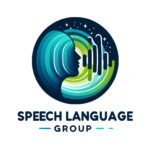Séminaire Cornet – Raghupati Vyas – 27/02/2026
Vendredi 27 Février à 11h30 en C057. Title: Games with Rational and Herding Players Résumé : This talk examines large-population games with heterogeneous decision-making, in which an α-fraction of players are rational, while the remaining agents exhibit herding behaviour. We introduce a new equilibrium notion, called the α-Rational Nash Equilibrium (α-RNE), and discuss its interpretations. We show that some classical equilibria may disappear and new ones may emerge for small values of α>0. Interestingly, rational players benefit from the presence of herding and may even achieve utility exceeding the socially optimum. Even more strikingly, in some cases, herding players also benefit, attaining utility close to the social optimum. Using transportation and bandwidth sharing games as case studies, we analyse the impact of herding on congestion and resource allocation, and quantify system inefficiencies through the Price of Anarchy. Finally, we discuss the mechanism and influence design in the presence of herding. While the expanded set of equilibria creates new opportunities, it also increases the risk of undesirable outcomes when influence cannot be effectively implemented.



